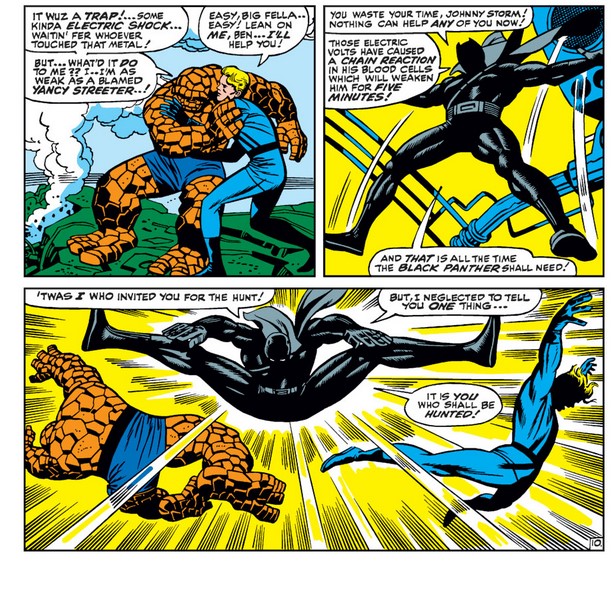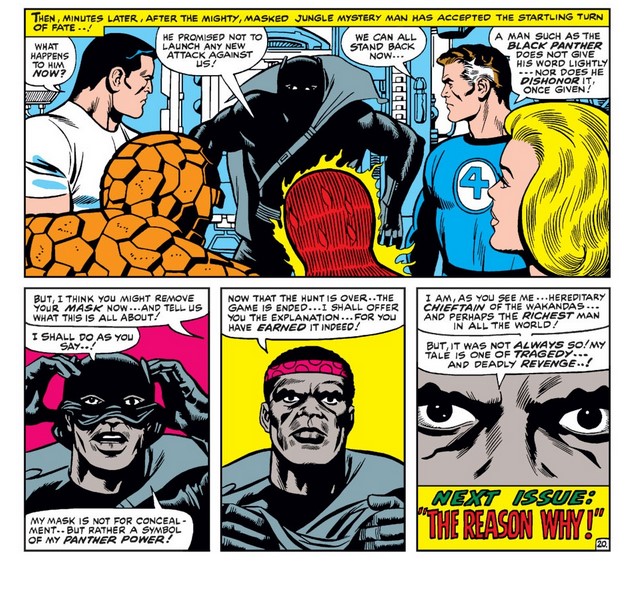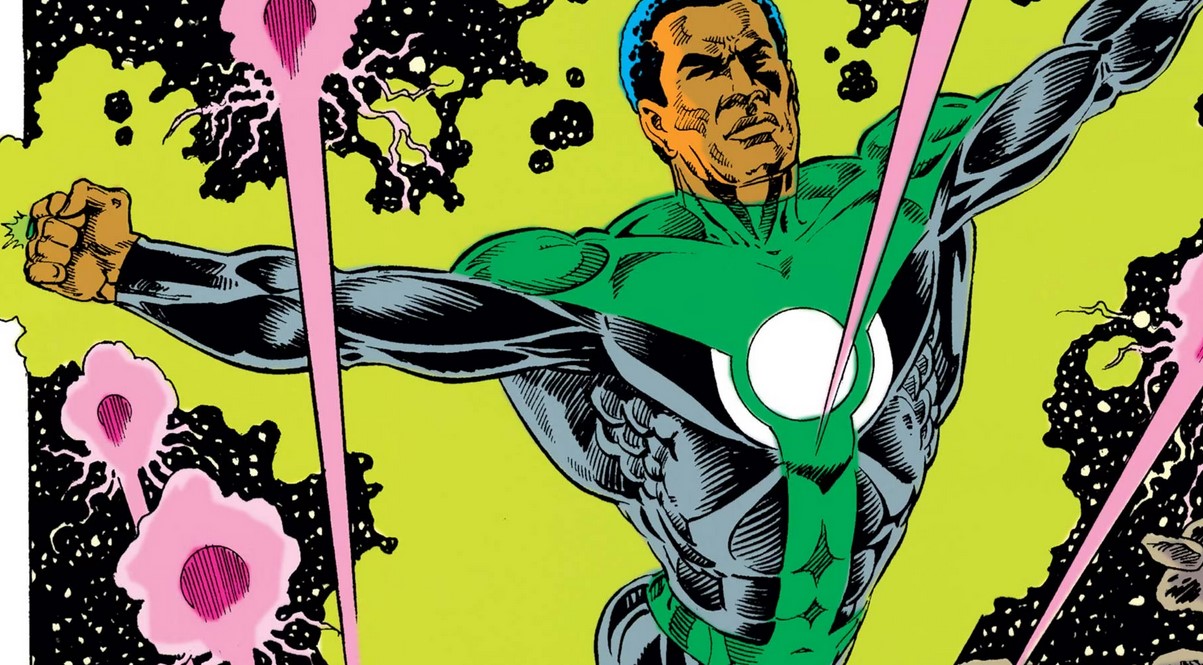Who Were Marvel’s and DC’s First Black Superheros?

Join the community on Reddit for the latest Marvel & DC news!
Over the years, both DC and Marvel produced many characters that eventually became part of popular culture. Both comic book publishing companies, from Superman to Iron Man, had some impactful characters. However, the most impactful characters were the ones that influenced the change in social perception of some marginalized groups, particularly black people. Representation is significant in today’s media, and comic books were always at the forefront regarding progress in fictional media. This article will discuss who was the first black superhero in Marvel and DC comics.
Black Panther was the first black superhero in Marvel comics, while John Stewart as Green Lantern was the first black superhero in the DC comics. Black Panther first appeared in Fantastic Four comics in 1966, whereas John Stewart debuted in Green Lantern comics in 1971. Both characters significantly impacted representation in comic books, with Black Panther becoming an essential and popular character within the Marvel Universe and John Stewart being hailed as one of the best Green Lanterns after Hal Jordan.
We will discuss this topic by mentioning the era of comic books at the time of characters’ debuts, impacts, and origins. If you are interested, stay with us until the end.
Who was the first black superhero in Marvel comics?
Contrary to popular belief, black characters existed in comic books before Marvel and DC decided to create their black superhero. After World War II, a few comic book publishers created the first black characters in comic book media. In 1947, the low-distribution All-Negro Comics presented Waku, Prince of the Bantu, who starred in his own story called Jungle Tales, and the character Lobo from Dell Comics Western.
Another black character in that era was Marvel Comics’ Gabriel Jones, a U.S. Army infantry private from Sgt. Fury and his Howling Commandos comic book. However, these are not superheroes bearing powers, and comic book readers of that era, especially black people, waited for their representative to be developed and part of the comic book media.

The 1960s decade was an era of social change, and comics joined that movement. Stan Lee and Jack Kirby developed the first black superhero in American comic book history, an African man called T’Challa, who acts under the superhero alias, The Black Panther. The character first appeared in July 1966 as a guest appearance in The Fantastic Four #52.
The story follows Fantastic Four, who arrive in the African country Wakanda, where they encounter their King and protector, T’Challa, known as Black Panther. Despite Marvel Comics being the first major comic book publisher to create and publish the first black superhero in comic book history, there have been some controversies regarding the character’s look.
In Fantastic Four #52 in 1966, Black Panther encounters Fantastic Four and fights them, but eventually introduces himself and reveals his true identity to the superhero team. T’Challa reveals his face, and he is more grey than black. Other controversies surrounded the time and name of the superhero because the character shared a name with the political organization Black Panther party – it didn’t help that Black Panther and the party were released in the same year, 1966. However, Kirby and Lee dismissed any connections to then active political organization. After a few failed tries to change T’Challa’s superhero name, the creators decided to stay with Black Panther.

Despite the controversies and early comic book issues, having T’Challa being a product of its time, the character evolved through decades. Black Panther had its first big comic book run in the 1970s, but the success wasn’t there. Only in the 1990s and 2000s did Black Panther’s character receive deserved attention and stories worthy of the notable superhero.
Since his release in the 1960s, Black Panther has been one of the most notable and interesting characters and part of the biggest Marvel Comics events. It did help that Marvel Cinematic Universe presented us with a cool version of Black Panther in the movie of the same name, which was really successful. He is mostly affiliated with the Avengers and Fantastic Four in the comics.
Who was the first black superhero in DC comics?
DC Comics (then called Kinney National/Warner Communications) was a little late to the party but still decided to release its first superhero not long after Marvel Comics did with Black Panther. The 1970s era is known as the Bronze Age of Comics, which was darker than the previous eras. The usage of heavy drugs in comics was an issue, and the fact 1970s were marked as a “drug decade” didn’t help the publishers who wanted to implement that social issue in their stories.

Nevertheless, DC developed some great characters, particularly in 1971 and 1972. At that point, Hal Jordan as Green Lantern was an established and notable character in DC comics, but the writers and artists of DC comics felt they needed another version of Green Lantern. In December 1971 and January 1972, DC Comics presented us with the first black superhero and new Green Lantern, John Stewart.
Eventually, John Stewart became a major recurring character of DC Comics, especially in the 1980s, when there was a period when Hal Jordan decided to step away from Green Lantern Corps. John Stewart continued being one of the stars of comic book runs like Green Lantern: Mosaic and appeared in Action Comics as one of the key characters. Younger fans know John Stewart and his Green Lantern from DC Animated Universe, specifically the Justice League and Justice League Unlimited TV cartoons.
Today, John Stewart’s legacy is visible in DC Comics and will get new content as part of the Dawn of DC relaunch, which excited many fans.
Black Panther and John Stewart were essential for the future colored superheroes of Marvel and DC comics – Marvel soon released Falcon, Storm, and other popular characters. At the same time, Stewart propelled the release of Black Lightning, Vixen, and other notable characters that enriched the comic book media.
Liked this article? Join the community on Reddit for the latest Marvel & DC news!

